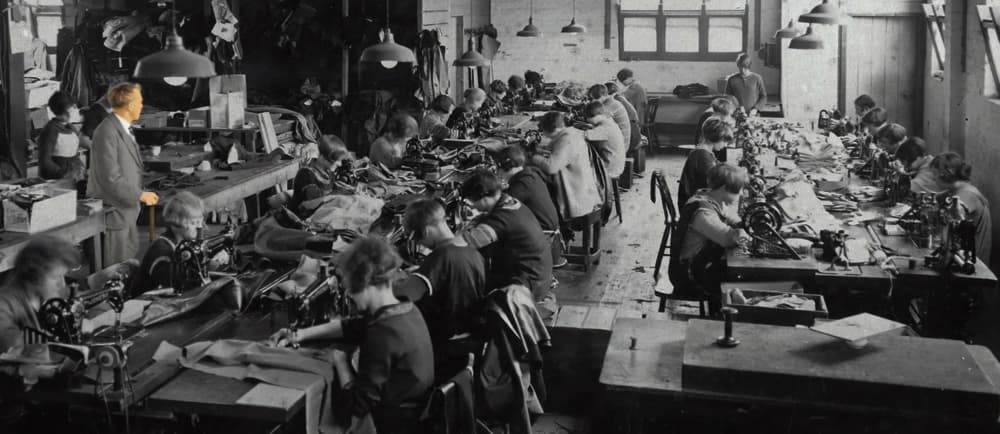
“Every time you are tempted to react in the same old way,
ask if you want to be a prisoner of the past
or a pioneer of the future.”
— Deepak Chopra
After college, I was working in a field I loved, doing what I loved. I enjoyed every day of work regardless of how long or how hard I needed to work. Then, one day, an interaction with a manager/leader metaphorically sucker punched me with an insensitive, inappropriate comment in the form of feedback laced with force and threat. I know, a quadruple whammy!
I have always been a very hard-working, dedicated individual whose energy is consistently high, with a robust positivity that is off the charts. It takes a lot to knock me over. But that did.
Now, as I look back on my employment experiences, I realize I never encountered a highly-motivating, thoughtful manager who was invested in helping me to be my best. Instead, I learned the lessons of good management and effective leadership from experiencing and observing a long line of ‘what not to do’.
It wasn’t until I finally left the ranks of the employed and followed my entrepreneurial instincts to start my own company that would help create places where individuals could shine, that I found a large number of strong, effective leaders.
I believe that the workplace and working relationships can be a temple to the best that people can be. That with good leadership and management, work can be meaningful and even joy-filled. That when the mission and values of the organization align with those of the individual, extraordinary things are possible.
We have just lived through a year where we have witnessed this. During this pandemic people have pulled together, assimilated tremendous change and challenge, and stayed the course. I have been witness to good leadership and management practices on the rise; and employees engaged, committed, and contributing. I have also watched the affects of the lack of desperately-needed, solid, competent, and values-based leadership and management when the going got tough. The results are difficult to witness. The casualties of the void-of-ability affects every aspect of the health of the organization — and its constituents.
I have asked myself this many times and even written a book with the same statement in its title, “I don’t get it, when they don’t get it!”
The field of management and leadership has advanced from the industrial age where the workforce was treated like parts of a machine — replaceable and expendable. Where power was held by a few and used over them in a forceful way to compel compliance; where the leadership style was either autocratic or benevolent; and where the structure of the organization hierarchical and siloed.
As these ways of working started to collapse, organizations toiled their way through “empowerment” to “engagement.” And from boss to coach and power-over to power-shared. It has been a journey. A journey that I was fortunate to witness throughout my entire career because I had joined a field called organizational development when it was first emerging to help study and facilitate these shifts.
I stay the course of change because I trust the process. But still, I ask myself why some managers and leaders ‘get it’ and other still do not?
Why, when the world of work has changed so much do individuals cling to the use of force and fear, control, and power-over? All the management and leadership books point us in a different direction. The workshops and training reinforce a more emotionally intelligent set of skills and abilities. And a ‘heavy-handed’ approach to leading and managing is just not accepted, nor does it create the best outcome. So why the attachment to a way of relating that no longer works (except for generating motion and not motivation)?
I am circling this question today because a very admired manager told me a story that moved my heart. This is my friend, Miguel. He started as a press operator and has earned his way to being the plant manager with three shifts of employees looking to him for leadership. He is a natural leader and a learner. He has the right instincts and values. He also is voracious in his ability to learn and apply. He actively asks for feedback and is the most coachable individual I know. It is a joy to be supportive of his efforts and help him spread like wildfire as he creates bright futures for hundreds.
We were talking because he had just lost a potential employee to another employer. Miguel was disappointed because he is highly invested in attracting as many bright, talented, next-generation individuals to the field of manufacturing.
Together, we were considering why this good candidate took a summer job with a large, global organization whose reputation is for treating their workforce like the ‘mindless muscle’ of the past era. Their minimum wage is highly competitive but the work climate less than ideal.
Miguel was concerned for the lost candidate. This employer whom the lost candidate chose is growing and very visible — but may not be approaching their culture with trust and respect as core. Miguel shared this example of the employers’ response to employee theft. To address the issue, they installed detectors at every entrance and instituted employee searches.
Miguel went on to share that when he experienced theft in his workplace he reacted differently. When it was discovered that food was being taken from the employee refrigerator, rather than raising a ruckus he recognized this for what it was — someone was very hungry. So, he asked the employees (versus telling or threatening them) to stop taking food from someone else’s lunch. Then he provided fruit and food in the employee lunchroom for the taking. What Miguel saw quickly was that it would take a very hungry person to want to eat anything available. Thus, he addressed the right issue and the problem went away. I have worked through many issues with Miguel, and he knows when to lean in and when to support. He is not afraid of having tough conversations and is compassionate in his consideration of people issues. He and his organization work very hard to attract and retain good people.
Miguel’s was a simple story — but so very powerful.
What would you have done when facing the same issue? What would be your first instincts? Are you able to look at every person with whom you work with ‘positive intention’? When issues arise, what managerial approach do you take first?
I can grow from Miguel. I am still growing in my ability to be the manager/leader that I aspire to be. It is a journey and one I am glad to be travelling. I am grateful for all the wonderful leaders and managers with whom I have worked.
Leslie
“Leading by fear is a lot of companies’ approach,
and a horrible way for people to exist in their lives,
when most of your life is spent at work.”
— Richard Branson


Recent Comments